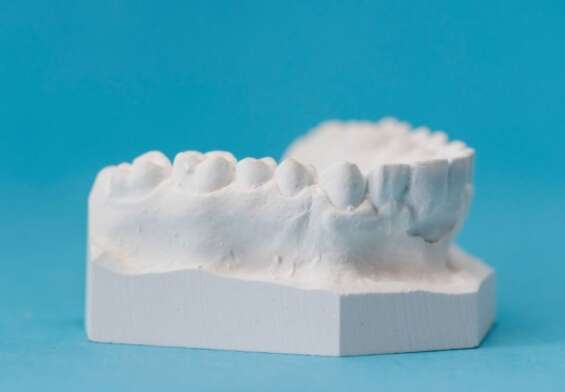
10 Proven Ways to Help Improve Brain Health
Are you feeling forgetful lately? Struggling to concentrate on tasks or remember important details? It could be time to start taking care of your brain health. Fortunately, there are plenty of ways to keep your mind sharp and functioning at its best. In this article, we’ll explore 10 proven ways to help improve brain health.
1. Exercise Regularly
Regular exercise has been shown to have numerous benefits for brain health. Exercise increases blood flow to the brain, delivering oxygen and nutrients that help to promote brain function. It also helps to reduce inflammation and improve the health of blood vessels, which can prevent or reduce the risk of cardiovascular disease – a risk factor for cognitive decline. Studies have also found that exercise can boost the production of neurotrophins, which are proteins that help to support the growth and survival of neurons in the brain.
One study published in the Journal of Alzheimer’s Disease found that regular exercise was associated with a reduced risk of cognitive decline and dementia. The study followed 1,646 adults over the age of 65 for six years, and found that those who exercised regularly had a 28% lower risk of developing dementia compared to those who did not exercise. Another study published in the journal Neurology found that exercise may help to improve cognitive function in people with mild cognitive impairment.
2. Get Enough Sleep
Sleep is essential for brain health. During sleep, the brain consolidates memories, repairs itself, and flushes out toxins. Chronic sleep deprivation, on the other hand, can lead to cognitive decline, memory loss, and even Alzheimer’s disease. Studies have found that sleep helps to clear away beta-amyloid, a protein that can build up in the brain and contribute to the development of Alzheimer’s disease.
To get enough sleep, it’s important to establish a regular sleep routine. Try to go to bed and wake up at the same time every day, even on weekends. Avoid caffeine and alcohol in the hours leading up to bedtime, and create a relaxing sleep environment by keeping the room cool, dark, and quiet. If you’re struggling to sleep, try relaxation techniques like deep breathing or meditation.
3. Eat A Healthy Diet
What you eat can impact your brain health too. A diet rich in fruits, vegetables, whole grains, and lean protein has been linked to better cognitive function, memory, and brain health. These foods are high in nutrients like vitamins, minerals, and antioxidants, which can help to protect the brain from damage and promote its function. In particular, omega-3 fatty acids, found in fish and nuts, can also boost brain health. Research has found that people who eat fish regularly have a lower risk of developing Alzheimer’s disease.
On the other hand, a diet high in saturated fats, sugar, and processed foods can contribute to cognitive decline. A study published in the journal JAMA found that people who ate a diet high in saturated fats had worse cognitive function over time compared to those who ate a diet low in saturated fats.
4. Stay Mentally Stimulated
Just like your muscles need exercise to stay strong, your brain needs mental stimulation to stay sharp. Activities like reading, playing games, and learning a new skill or language can help keep your brain active and engaged. This can also help to reduce your risk of developing dementia and other cognitive decline-related conditions.
Research has found that people who engage in mentally stimulating activities have better cognitive function and a reduced risk of developing dementia. A study published in the journal Neurology found that people who engaged in mentally stimulating activities throughout their lives had a 32% lower risk of developing dementia.
5. Manage Stress
Chronic stress can have a negative impact on your brain health, leading to memory loss, anxiety, and depression. So, it’s important to find ways to manage stress in your life. This can include meditation, deep breathing exercises, or engaging in relaxing activities like yoga or spending time in nature.
Research has found that stress can lead to the development of brain lesions and increase the risk of developing Alzheimer’s disease. One study published in the journal Neurology found that people with high levels of stress hormones had a greater risk of developing dementia.
To manage stress, it’s important to identify sources of stress in your life and find healthy ways to cope with them. This can include exercise, spending time with loved ones, practicing mindfulness, or seeking professional help from a therapist or counselor.
6. Socialize Regularly
Social interaction is another important factor in brain health. Regularly spending time with friends and family can help to reduce your risk of developing depression, anxiety, and cognitive decline. It can also boost your overall well-being and sense of purpose.
Studies have found that social isolation and loneliness can have negative effects on brain health, leading to cognitive decline and an increased risk of developing dementia. A study published in the journal Neurology found that people who reported feeling lonely had a 40% greater risk of developing dementia.
To stay socially active, try joining a club or group related to your interests, volunteering, or simply making plans to spend time with friends and family on a regular basis.
7. Challenge Your Brain
Challenging your brain is another way to keep it functioning at its best. This can include learning a new skill, doing puzzles, or trying a new hobby. By challenging your brain regularly, you can help to improve cognitive function, memory, and attention.
Research has found that engaging in mentally stimulating activities can help to reduce the risk of developing cognitive decline-related conditions. One study published in the journal Neurology found that people who engaged in mentally stimulating activities had a 63% lower risk of developing dementia compared to those who did not engage in such activities.
To challenge your brain, try learning a new language, playing chess or other strategy games, or taking up a new hobby that requires problem-solving skills.
8. Avoid Smoking And Excessive Alcohol Consumption
Smoking and excessive alcohol consumption can have a negative impact on brain health, leading to cognitive decline, memory loss, and an increased risk of developing dementia. So, if you want to keep your brain functioning at its best, it’s important to avoid these harmful habits.
Research has found that smoking can accelerate cognitive decline and increase the risk of developing Alzheimer’s disease. One study published in the journal Neurology found that smokers had a 50% greater risk of developing Alzheimer’s disease compared to non-smokers.
Similarly, excessive alcohol consumption can also have negative effects on brain health, leading to memory loss and cognitive decline. One study published in the journal Alcoholism: Clinical and Experimental Research found that heavy alcohol consumption was associated with a greater risk of developing cognitive impairment and dementia.
9. Practice Good Mental Health Habits
Good mental health habits, like practicing gratitude, staying positive, and engaging in self-care activities, can also help to boost brain health. By prioritizing your mental health, you can reduce stress, improve cognitive function, and boost overall well-being.
Research has found that positive emotions and a sense of purpose can have positive effects on brain health, reducing the risk of developing cognitive decline-related conditions. One study published in the journal Neurology found that people who reported a greater sense of purpose in life had a 30% lower risk of developing dementia.
To practice good mental health habits, try keeping a gratitude journal, practicing meditation or mindfulness, or engaging in self-care activities like taking a relaxing bath or treating yourself to a massage.
10. Seek Professional Help When Needed
If you’re experiencing symptoms of cognitive decline, memory loss, or other brain health issues, it’s important to seek professional help. A healthcare professional can help to diagnose and treat any underlying conditions that may be impacting your brain health. They can also provide guidance and support for making lifestyle changes that can improve brain health.
It’s important to keep in mind that early detection and treatment of cognitive decline-related conditions can help to slow down or even prevent further decline. So, if you’re experiencing symptoms like memory loss, difficulty concentrating, or changes in mood or behavior, don’t hesitate to seek professional help.
Last Words
In conclusion, there are many proven ways to help improve brain health, from exercising regularly and getting enough sleep to eating a healthy diet and challenging your brain. By incorporating these habits into your daily routine and seeking professional help when needed, you can keep your mind sharp and functioning at its best. Remember, taking care of your brain health is not just important for the present, but it can also help to reduce your risk of developing cognitive decline-related conditions later in life. So, start taking care of your brain today and enjoy a healthier, happier future.











